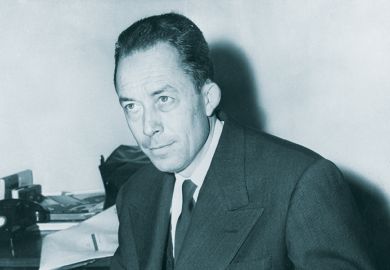This collection of essays on South Indian religious traditions is drawn from a conference held in 1990 in honour of the historian R. E. Frykenberg. It is distinguished by a contribution from Frykenberg himself, who explores the processes through which Hinduism came to be understood and acted upon as a "single religious system or tradition", linked to the consolidation of colonial rule.
Although not a new area of inquiry for Frykenberg, the exploration is still most pertinent, as in the past few years the legitimacy of politically inspired official Hinduism has gained rapid ground in India. In this context, Frykenberg's historically grounded questioning of the whole category of Hinduism (with, as he says, "all its boggy imprecisions") is one of exceptional significance in both academic and political terms.
It is just this broad arena of significance that the editors of this volume have claimed as the territory of modern scholars of religion. Secular traditions in the West have led, they say, to an inability to conceptualise religion as an engine of social and political change.
The essays in this volume are presented as resisting this tendency by demonstrating how religion has operated as a key element in the development of public cultures in southern India. This undertaking should appeal to social scientists and cultural historians as well as students and researchers in religious studies. Indeed, the claims of the editors could be seen as indicating a new confidence in the status of religious studies as a dynamic, multi-faceted field that has much to contribute to broader socio-political debates.
Certainly some of the essays in this collection reflect this trend. Those by Frykenberg and Pamela Price complement each other well in terms of their examination of how "reified" Hinduism emerged as a feature of a new form of civil society, a new way of "being public", in 19th-century southern India. The significance of litigation in this process is reinforced through John Paul's examination of legal struggles over potential converts to Christianity during the same period.
A most innovative and richly sourced approach is demonstrated in Pauline Kolenda's account of the changing social position of brahmins in Travancore. Susan Bayly provides some much-needed focus on the development of South Indian Islam in historical context.
Some loss of focus on the stated themes is perhaps inevitable in a volume of diverse papers. This could have been compensated by a more detailed treatment of key themes - particularly the slippery concept of "public culture" - in the introduction.
On a more prosaic level, there are too many typographical errors in this volume. Given the book's cost, one would assume (hope) that the services of a literate proof-reader might have been engaged somewhere along the line. Some amusement, at least, is provided by this omission, although perhaps the description of Frykenberg as the "distinguished history of South India" is less a typo than a Freudian slip.
John Zavos is lecturer in South Asian studies, University of Manchester.
Religion and Public Culture: Encounters and Identities in Modern South India
Editor - Keith E. Yandell and John J. Paul
ISBN - 0 7007 1101 5
Publisher - RoutledgeCurzon
Price - £45.00
Pages - 260
Register to continue
Why register?
- Registration is free and only takes a moment
- Once registered, you can read 3 articles a month
- Sign up for our newsletter
Subscribe
Or subscribe for unlimited access to:
- Unlimited access to news, views, insights & reviews
- Digital editions
- Digital access to THE’s university and college rankings analysis
Already registered or a current subscriber? Login



